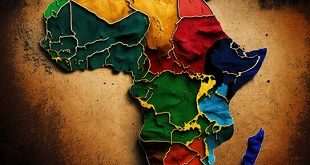
Having removed Mubarak, the revolutionaries in Tahrir Square are realising that the struggle for democracy has just began
Last week, Egyptians went to the polls to vote in the second round of their presidential elections. The first round had produced two candidates: Ahmed Shafiq, a former air force commander and last Prime Minister under Hosni Mubarak; and Mohammed Morsi from the Muslim Brotherhood. The two candidates reflected the historical contours of political division in Egypt since the 1952 revolution led by Gamal Abdel Nasser: the army and the Islamists. Funny how little things change.
The youthful, educated, and urbanised revolutionaries who toppled Mubarak using social media and protesting in Tahrir Square are still confused by this turn of events. They fought to end military rule and forestall a religious zealot from grabbing power. Perhaps they had hoped that democracy would produce a third force in Egyptian politics. But as the presidential contest shows, democracy has actually reproduced the status quo. The main beneficiaries of the revolution are not the “democrats” in Tahrir Square, but the Islamists who got a chance for a free and fair election.
This outcome has actually forced the revolutionaries into an awkward position of having to oppose the democratic process and protest against the will of the people. It turns out that many ordinary Egyptians do not trust the pro-democracy movement. Instead, they seem more inclined to support either the Islamists or the former Mubarak allies now backed by the military. This has forced the pro-democracy groups into undemocratic positions. For example, rather than seek to defeat Mubarak’s allies through a democratic contest i.e. the ballot box, they have been calling for legal fiat i.e. asking the ruling military council to ban the former president’s allies from the election.
The Egyptian military has no love for the Brotherhood whose candidate declared victory in the hotly contested race. Perhaps aware of the likely outcome and unable to openly rig the vote, the ruling military council dissolved parliament (where the Islamists enjoy a comfortable majority) and declared martial law on the eve of the election. It also issued a new constitution that gives legislative powers to the army and that allows the army to take control of the budget. The Brotherhood immediately rejected these schemes – setting the stage for a likely confrontation.
The revolutionaries who had looked at the military as allies during the final days of Mubarak may need to go back to the drawing table. Currently, they may have to forge alliances with the Islamists to defeat the military in the struggle to control the Egyptian state. However, the Islamists are the most solid social organisation in Egyptian political life. It is possible that once placed in power, it may be difficult to get them out. They may use the democratic process to gain power and like Adolf Hitler in Germany in 1933, use it to end the democratic experiment. Organisations with such deep social roots are very difficult to dislodge from power.
In the short term, the biggest losers seem to have been the “pro-democracy” protesters in Tahrir Square. They proved to have no mass support especially among the upper and lower classes of Egyptian society. The very rich sided with the military-backed Shafiq alongside poor women; the very poor, largely male, threw in their lot with the candidate of the Brotherhood. Which begs the question: Were the revolutionaries who toppled Mubarak a reflection of genuine mass movement? Or could they have been a minority group of angry youths concentrated in urban areas who were lucky to get the support of the military for their cause?
In all countries, especially developing ones, it is difficult to gauge the level of mass participation in politics. All too often, the usual platforms of democratic expression – the mass media, civil society and political parties – are controlled by a few elites concentrated in urban areas. This tends to amplify their voice and thus project their demands as enjoying wide support. Without control over such instruments of organised and amplified political expression, the large mass of poor rural people constitutes a silent majority. The challenge is always how to organise their voice.
The revolutionaries who toppled Mubarak through mass protests were actually given a decisive hand by the army. Mubarak is a highly decorated former air force general who excelled in the October 1973 Arab-Israel war. So why did the Egyptian military seek to remove one of their own? The contradiction is that although Mubarak was scheming for a family succession (to his son Gamal), he was also the first leader of post 1952 Egypt who sought to transfer power from the military to a political party.
The Egyptian military enjoys overwhelming control over the Egyptian state and economy. Some estimates suggest that almost 40 percent of the country’s Gross Domestic Product (GDP) is produced by businesses directly owned or indirectly controlled by the army. This gives Egyptian generals daunting political weight. In his search for family succession, Mubarak had not taken his son to the army where promotion through the ranks is done on merit. Some suggest that he felt he could not easily manipulate the structures of such a deeply institutionalised military to get his son through.
Mubarak therefore sought to use his political party, the National Democratic Party (NDP), to promote his chances of family succession. This also meant that he needed to shift power from the military to his party. Thus Mubarak began to give lucrative government tenders and contracts to individuals and groups allied to the NDP. He was calculating that by this, he would create a private sector constituency located in his party to support his son’s bid for the presidency. But this also signaled to the army elite that the president was working against their interests. Thus, when the “pro-democracy” protestors took to the streets and the army was called in, it just joined them.
The honeymoon between the military and the revolutionaries has been short-lived. Now, both the Islamists and the revolutionaries are united in hating the military. But the revolutionaries need to learn that protesting is not enough. Organising is better. The future of democracy in Egypt will depend on how fast the revolutionaries move from Tahrir Square to establish a foothold in Egyptian society.
amwenda@independent.co.ug
 The Independent Uganda: You get the Truth we Pay the Price
The Independent Uganda: You get the Truth we Pay the Price



